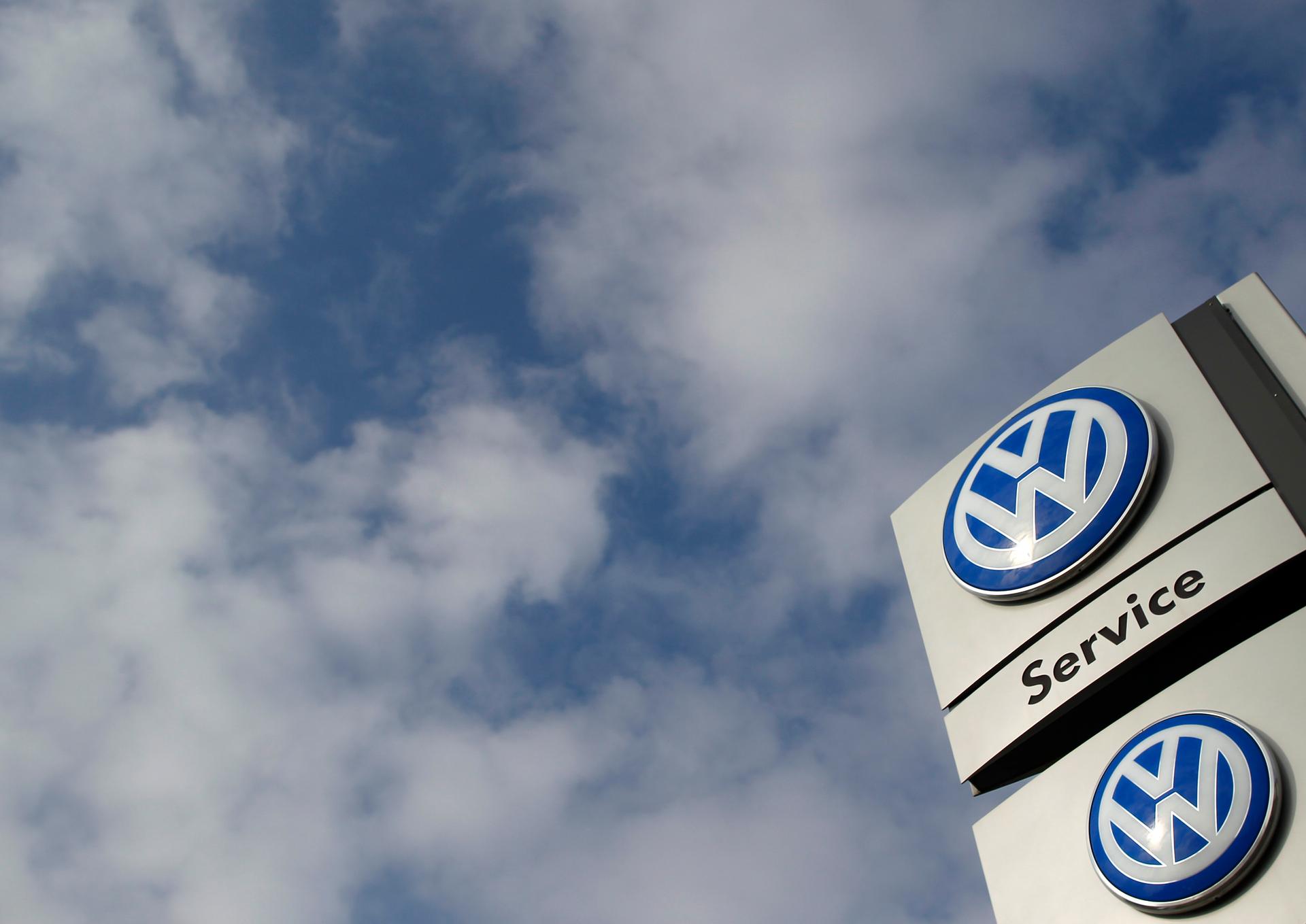VW deal doesn’t fix deeper problems in emissions testing
A sign of a Volkswagen VW car dealer is seen in Bochum, Germany March 16,2016
German carmaker Volkswagen agreed Thursday to buy back or fix almost half a million cars in the US that it rigged to cheat on emissions test.
The framework deal allows owners to choose whether they’d like their cars to be purchased by the carmaker or fixed, but details of the deal between the carmaker and US regulators, including buyback prices, won’t be finalized for several weeks.
Rebecca Lindland, a senior analyst with Kelley Blue Book, said regulators sent a clear message to car makers today.
“Don’t mess with the government,” she said.
Compensation for car owners from VW is expected to reach more than a billion dollars.
Fees for environmental clean-up and a fund to promote green automotive technology that haven’t been set yet will push the price tag of dieselgate much higher.
“This is a pretty substantial financial impact for Volkswagen,” Lindland said. “So I think if this is the new levels that these fines hold, then I think it could provide a significant deterrent to manufacturers going forward.”
But the company's chicanery is just the tip of the iceberg when it comes to emissions standards in the US and elsewhere. The Volkswagen ruling may instil fear of sky-high, after-the-fact penalties for car manufacturers who cheat.
But what it doesn’t change, Lindland argues, is how easy it can be for them to game the system in the first place.
“What’s actually broken, arguably, is the testing system itself,” Lindland said.
The VW scandal is about emissions, but Lindland said when it comes to gas mileage, there are lots of ways to make cars perform better in the testing lab than they will in the real world.
“You can do things like overinflate the tires and then that will give you a better fuel economy result,” Lindland said.
She said that happens in the US, and it’s also what Mitsubishi got in trouble for this week in Japan.
“You can also do things like seal up the doors and windows with tape, which is going to make the car more aerodynamic, and give you better fuel economy,” Lindland said.
The company Emission Analytics does real-world testing for cars, and compares their results to what auto makers advertise.
CEO Nick Molden said the difference with European cars is striking.
“Miles per gallon on average is 22 percent worse than the sticker, nitrogen oxide emissions are four times the official level on European cars,” Molden said.
Those figures are based on his company’s tests of more than 750 makes and models. Molden said the discrepancy is based partly on how testing is done in Europe.
Car companies can hire external labs to conduct their emissions testing, or do it themselves with regulatory oversight, Molden said.
Testing is overseen by one country’s regulatory authority, and once a car is approved, it is cleared to be sold EU-wide.
Greg Archer with the Brussels-based sustainable development non-profit Transport & Environment argues the system is ripe for abuse.
“In Europe, the manufacturers go shopping to choose which authority will approve their vehicles,” Archer said. “If they don’t like the work that they’re doing … then the manufacturer takes his business to another country.”
Emission Analytics’ Molden sees the relationship a bit differently, and more kindly. In a competitive market, he said, car companies are understandably looking for the best gas mileage and emissions ratings they can get.
So they work with testing houses that know the loopholes to get them the best ratings.
“This is all perfectly legal, and it’s a product of regulations that have lots of holes in them,” Molden said.
In the United States, Molden says the system works a lot better, and emissions and gas mileage are generally closer to what’s advertised.
Car companies test their own vehicles, but the EPA audits that data and does some of its own testing.
Importantly, Molden said, they also crack down on companies that break the rules.
In 2014 the Environmental Protection Agency fined automakers Kia and Hyundai $100 million for selling cars that violated Clean Air standards.
“There’s no tradition of that in Europe really at all,” Molden said.
Molden believes the kind of cheating VW did is probably rare here and in places like Japan.
“In Europe, I think it’s more likely that everyone is doing this optimization activity,” Molden said. “But it’s probably all legal.”
The EU is rolling out new tests for carbon dioxide and nitrous oxide emissions starting in 2017. Molden says they’ll close some of the loopholes manufacturers exploit.
Meanwhile in the US, Volkswagen seems likely to avoid a trial on its admitted emissions cheating, but it’s still not clear how high the price of Dieselgate will rise.
Every day, reporters and producers at The World are hard at work bringing you human-centered news from across the globe. But we can’t do it without you. We need your support to ensure we can continue this work for another year.
Make a gift today, and you’ll help us unlock a matching gift of $67,000!
